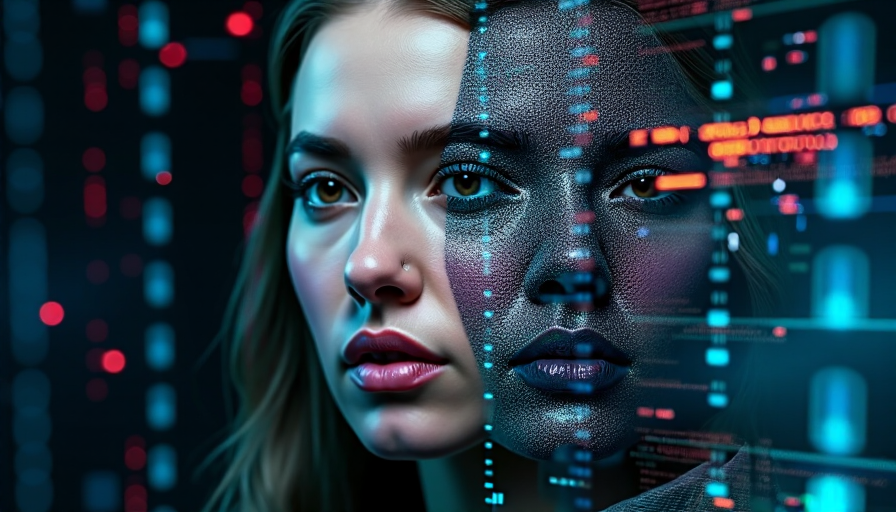
Deepfake Crisis Spurs Innovations in AI Fraud Detection
Rising Threats in the Digital Age
Industries across the globe are facing an unprecedented challenge as AI-generated deepfakes become increasingly common. With the ability to forge everything from passports and academic certificates to corporate documents and identity proofs, these sophisticated fakes threaten the very fabric of trust in both professional and personal spheres.
Cybersecurity experts have long warned about such dangers, but recent advancements in AI have significantly lowered the barrier for creating believable fake images, videos, and audio recordings. This new wave of deepfakes is not only bypassing traditional security methods like watermarking, metadata analysis, and facial recognition but also exploiting free anti-detection tools that make it even harder to distinguish reality from fabrication.
The Race for Robust Detection Tools
As deepfake attacks continue to escalate, organizations in sectors such as banking, telecommunications, logistics, healthcare, education, and entertainment are urgently seeking advanced solutions to counteract these threats. Startups like pi-labs and Neural Defend are at the forefront of this battle. They are developing cutting-edge detection platforms such as Authentify, which is already in use by central and state cyber agencies and forensic labs.
Real-World Impacts
A notable incident involved a Hong Kong-based multinational company that lost $25.6 million when an employee was deceived during a group video conference. During this conference, realistic deepfake replicas impersonated key figures, including the CFO, highlighting the critical need for reliable detection technology. Gartner projects that by 2028, 40% of social engineering attacks will employ deepfake techniques, targeting not just top executives but entire workforces.
Innovating Against Fraud
Investors see vast potential in the AI-driven fraud detection market, expecting it to balloon into a billion-dollar industry in the coming years. Cofounders and CEOs, including Ankush Tiwari of pi-labs and representatives from Neural Defend, stress that advanced tools are essential to shield vital functions such as HR, finance, legal, and operations from the sophisticated methods used by fraudsters.
Banks and other BFSI organizations are now incorporating AI-powered video verification and voice authentication systems to mitigate the risk of deepfake-based fraud. These measures help prevent scenarios where cybercriminals impersonate senior executives to facilitate unauthorized financial transactions.
Expanding Horizons: Celebrity and Personal Security
Beyond corporate security, the creative and entertainment industries are also turning to technology to battle the misuse of AI. For example, Mumbai-based Studio Blo is piloting its AI clone management platform, Faimous, which is designed to protect celebrities and models from unauthorized and non-consensual deepfake usage. The platform not only safeguards public figures but also enables them to manage, monetize, and monitor their official digital likenesses.
Dipankar Mukherjee, cofounder at Studio Blo, remarked on the alarming ease with which deepfakes can now be generated—even by a teenager using a mobile phone app. His team utilizes both proprietary and open-source tools to analyze online content, flagging images with a high probability of containing inappropriate or harmful elements such as hate speech and violence.
Looking Ahead
While the proliferation of deepfake technology poses significant risks, the surge in innovative AI fraud detection tools offers a beacon of hope. As industries brace for the impact of these threats, experts agree that timely adoption of robust security measures will be instrumental in safeguarding data integrity and public trust in the digital age.
Key Takeaways
- Emergence of deepfakes: AI technology is enabling the creation of hyper-realistic fake documents, voices, and images.
- Ineffectiveness of traditional methods: Conventional security techniques like watermarking and facial recognition are increasingly insufficient.
- Innovative defense strategies: Cybersecurity startups such as pi-labs and Neural Defend are pioneering advanced detection tools.
- Economic impact: Deepfake frauds contributed to over $6 billion in losses in 2024 alone, with predictions of growing attacks in the future.
- Broad sectoral implications: From corporate security and banking to celebrity management, industries are racing to implement new safeguards.
Note: This publication was rewritten using AI. The content was based on the original source linked above.